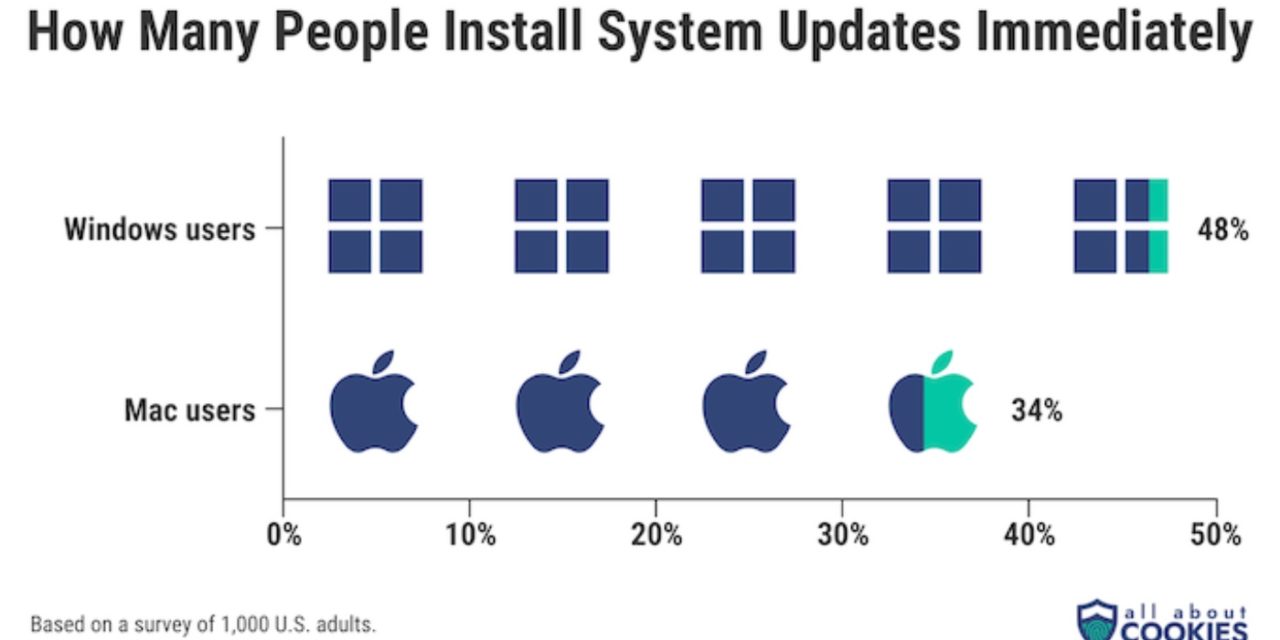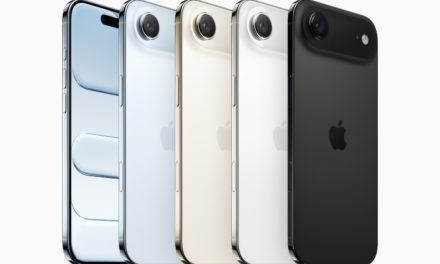All About Cookies surveyed 1,000 adults about their digital safety headaches. The site that covers security issues then broke down the online habits of Mac and Windows users to see what conclusions can be made. Here’s what the report found:
- PC and Mac users report computer issues at the same rate, including viruses, malware, and major computer repairs.
- Mac users are significantly less likely than Windows users to use antivirus software (34% of Mac users vs. 57% of Windows users).
- Mac users are also significantly less likely than Windows users to use anti-spyware software (9% of Mac users vs. 20% of Windows users).
- Windows users are more likely to feel unsafe on public Wi-Fi (52%) than Mac users (44%).
- Nearly half of Windows users (48%) tend to update their systems as soon as possible compared to just over one third of Mac users (34%).
- Mac users are significantly more likely than Windows users to use autofill for passwords, personal info, and financial info.
The study says that one thing all these features have in common is how easy it is for Apple users to implement them. Things like Touch ID (fingerprint recognition), Face ID (facial recognition), and iCloud back-ups come standard on most Apple devices. Plus, two-factor authentication is easy to implement on Apple’s operating system.
However, Windows users are more likely to implement more powerful security tools, especially antivirus software: 57% of Windows users use it compared to just 34% of Mac users. Similarly, Windows users use firewalls at a rate 11 points higher than Mac users (34% vs. 23%), and they also use anti-spyware software more than twice as often.
But the Sellers Research Group wants to make sure you note this: although Macs can get viruses, there are some numbers that work in the favor of Mac users. While there’s nothing implicitly safer about a Mac, a lower volume of threats exists compared to Windows.
Windows remains the most popular platform, commanding about 75% of the global operating system market share worldwide. The Mac accounts for less than 20% of computers globally. In terms of profit for hackers, it’s more lucrative to create malware for Windows than for Macs.
How to protect your Mac
So how do you protect your Mac from getting viruses? Here are some suggestions from IPVanish:
° Make sure your software is up to date.
° Back up important files.
° Heed the advice of Apple and avoid installing apps that are not available from the App Store.
° Use a VPN. While a VPN is a great tool for daily privacy, it’s critically important to use on public Wi-Fi. Open networks are not secure. Unencrypted traffic is interceptable by third parties sharing your network access.
° Use antivirus and anti-malware protection.
Article provided with permission from AppleWorld.Today




